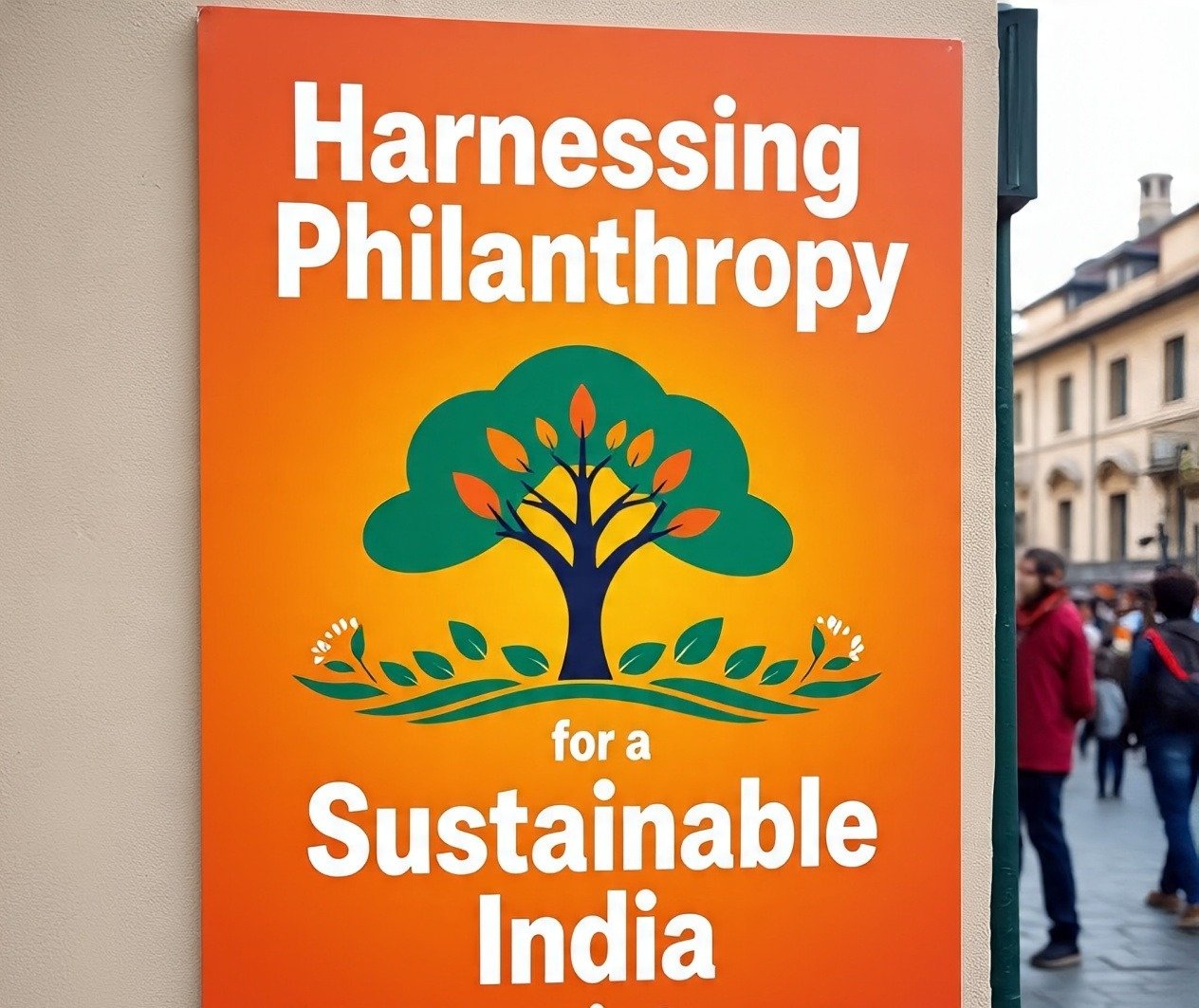
India’s climate crisis is no longer a distant warning; it’s an unrelenting reality. From the plains to the coasts, millions are facing the fallout of rising temperatures and erratic weather patterns. Marginalised farmers see their livelihoods wither, low-income communities grapple with displacement, and women bear the brunt of natural disasters. In a nation where 65% of the population depends on agriculture, every degree of warming amplifies the risk. While governments, corporations, and civil society are taking action, the scale of the crisis demands a fresh approach—and that’s where philanthropy can step in.
Philanthropy’s unique ability to provide long-term, flexible funding and amplify unheard voices could be transformative for India’s climate resilience. To truly make a difference, it must focus on empowering communities, nurturing innovation, and fostering resilience at every level.
Catalysing Innovation: The Engine of Change
To combat climate change, India needs more than good intentions; it needs groundbreaking solutions. Investing in innovative renewable energy technologies, adaptive farming methods, and efficient water management systems can build a climate-ready nation. Policies must set ambitious targets while fostering accountability and collaboration among all stakeholders. Here, philanthropy can fund experimental projects, support research, and bring scalable innovations to the forefront.
From Grassroots to National Impact
Community-led initiatives are often the unsung heroes of climate action. Rooted in local traditions and knowledge, these efforts offer practical, sustainable solutions. Philanthropic funding can amplify these successes, transforming small-scale projects into national movements. Organisations like PRADAN, which promote natural farming and nature-based solutions, showcase the potential of grassroots resilience in mitigating climate uncertainties.
Civil Society: Amplifying Voices from the Frontlines
Civil society organisations (CSOs) are essential in addressing climate challenges. They ensure the voices of affected communities are heard in national and global arenas. By investing in these organisations, philanthropy can strengthen democratic decentralisation, empowering communities to co-create equitable and sustainable solutions. Initiatives like Climate RISE Alliance’s Interwoven Futures highlight how CSOs can drive impactful climate strategies.
Women: The Unsung Climate Leaders
Women are often first responders and primary caregivers during climate crises, giving them unique insights into managing resources and building resilience. Supporting women-led initiatives and capacity-building programs can unlock their potential as changemakers. Platforms that prioritise women’s leadership ensure solutions are inclusive and community-driven. Women’s perspectives can bridge critical gaps, making strategies more innovative and impactful.
Closing the Funding Gap: A Moral Imperative
India’s climate financing needs are vast, yet only 0.5% of philanthropic funding is directed toward this cause, covering just 10% of the requirement. Addressing this gap is not just an opportunity—it’s a responsibility. By directing resources to underserved areas and fostering transparency, philanthropy can ensure vulnerable communities aren’t left behind.
Breaking Silos: Collaboration is Key
Philanthropy works best when aligned with governments, NGOs, private sectors, and civil society. Collaborative partnerships prevent duplication, pool resources, and foster transparency. For instance, mangrove restoration projects in Odisha have shown how joint efforts can mitigate the impacts of cyclones. Additionally, traditional knowledge systems often hold the key to addressing modern climate challenges and must be leveraged.
Action Required
India’s philanthropic sector has already sown seeds of change through platforms which connects donors with impactful climate projects. Collaborative initiatives are mainstreaming local voices into the national climate narrative. But with the crisis intensifying, the need for focused, strategic philanthropy is more urgent than ever. By investing in innovation, empowering communities, and bridging funding gaps, philanthropy can become the linchpin of India’s climate resilience.
The climate emergency demands that philanthropy rise to its full potential, ensuring a sustainable and equitable future for all.





















